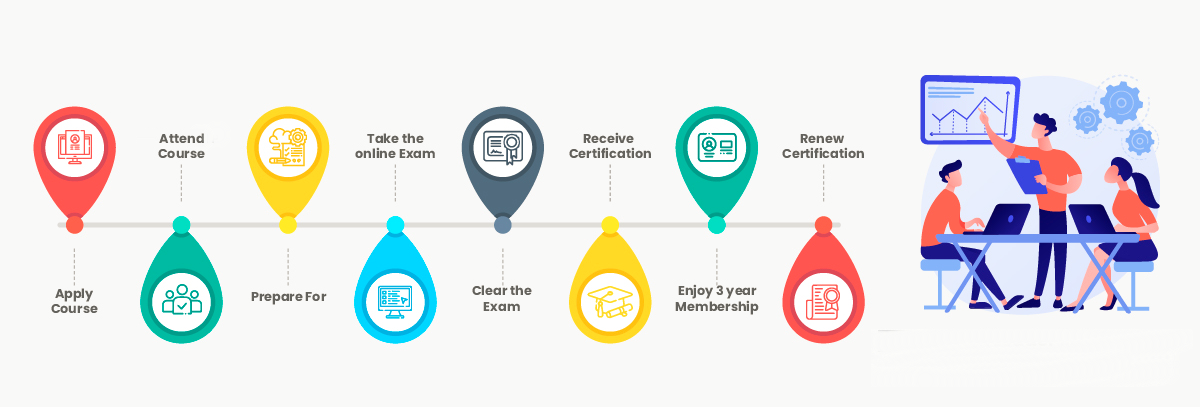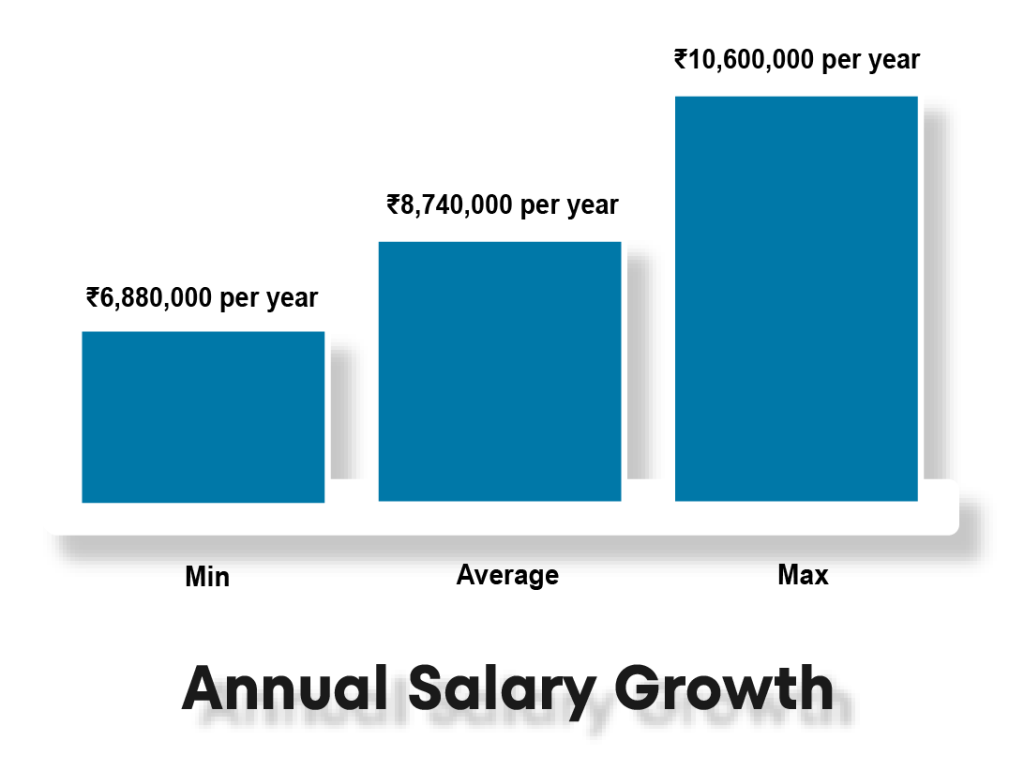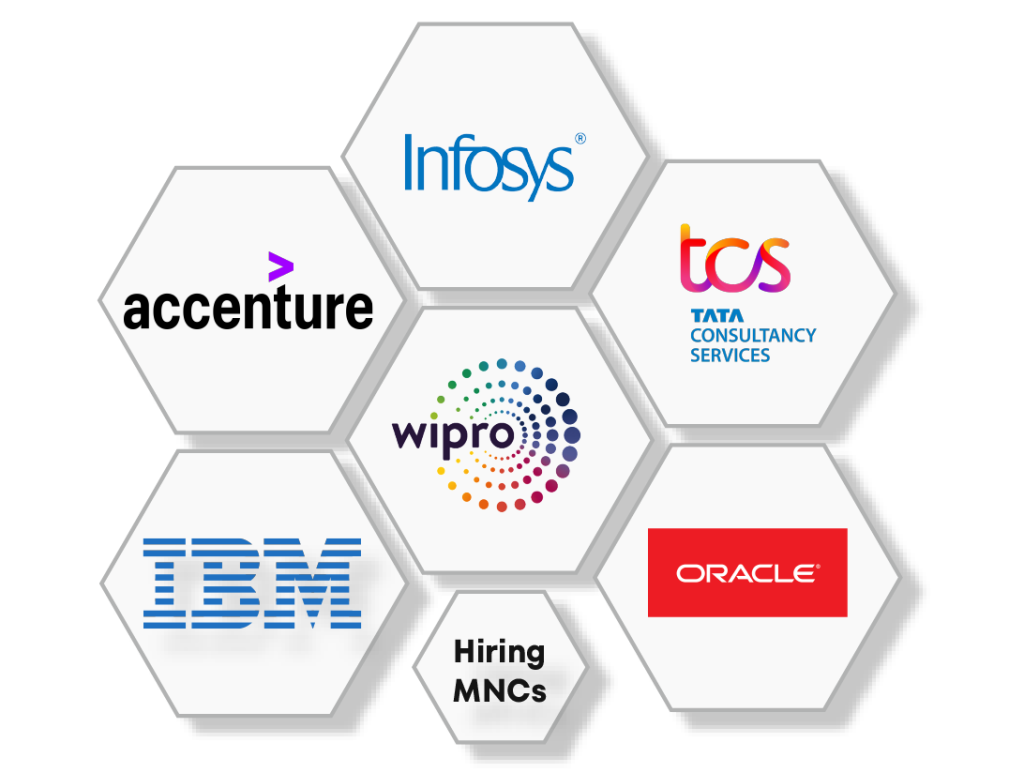
Hibernate is a popular framework used for object-relational mapping in Java environments. The Education Nest offers a certificate course that focuses on teaching individuals how to effectively utilize the Hibernate Framework. The course is designed by industry experts and covers key concepts such as Spring REST, Spring MVC, Spring Boot, Hibernate CRUD operations, among others. Real-time projects are incorporated in the course to aid in understanding these concepts, and each line of code is explained in a simple manner. The course is led by an experienced instructor who will guide participants through the fundamental concepts of core, annotations, Java configuration, AOP, spring MVC, hibernate, and Maven. In addition, the course delves into the specifics of Hibernate mapping, queries, transactions, and concurrency.
Application Deadline: Jun 30, 2023
Upskill for Your Dream Job
Sambodhi and Education Nest offer a Hibernate training course that provides live project-based training. Participants can learn Hibernate from industry experts with more than 10 years of experience. Hibernate is an object-relational mapping (ORM) framework for Java that simplifies the development of database applications by mapping an object-oriented domain model to a relational database. The course covers topics such as Hibernate configuration, mapping, querying, caching, transactions, and integration with other frameworks. Participants will have the opportunity to work on real-world projects to gain practical experience.



Instructor-led Hibernate Framework live online Training Schedule
May 15th – Weekend
July 1st – Weekend
Why enroll for Hibernate Framework Certificate Training Course?

Hibernate Framework is popular in Java development, and demand for skilled developers in Hibernate is stable.

MNCs rely on Java enterprise apps with Hibernate for database management, creating high demand for Hibernate developers in tech, finance, and healthcare sectors.

The average salary for a Hibernate developer in the US is around $84,000 per year, and senior developers can earn up to $130,000 per year.

Hibernate Framework Training Course Benefits
As the use of data is increasing every day, the complexity and use of databases are increasing exponentially. Hence, it is essential to have a framework that helps handle connections, sessions, transactions, and life cycles of databases. Hibernate can optimize database access and improve performance by reducing the number of SQL queries executed against the database. Hibernate provides a wide range of features such as caching, lazy loading, and connection pooling . Expertise in the Hibernate Framework can open up opportunities for career advancement in enterprise application development, as it is a widely preferred option for such projects.

Annual Salary

Hiring Companies
Want to become a Java Programming
Professional?
Why Hibernate Framework Certificate Training Course from Education Nest






Hibernate Framework Core Java Skills Covered
Hibernate Framework Training Course Syllabus
Hibernate Framework Training Projects

Hibernate Framework is widely used in the retail industry for developing applications that manage product information, inventory, and sales data. One example of a Hibernate project in the retail industry is the development of an e-commerce website that uses Hibernate for database management and object-relational mapping. Another example is the development of a point-of-sale system that uses Hibernate for managing customer information, tracking sales, and updating inventory in real-time. With Hibernate, retail businesses can develop efficient and scalable applications that can handle large amounts of data and provide real-time insights into business performance.

Hibernate Framework is widely used in the IT industry for developing enterprise-level Java applications. It offers a range of features such as object-relational mapping, transaction management, and query language support, making it a popular choice for building robust and scalable applications. Some of the common Hibernate projects in the IT industry include developing web-based applications, e-commerce platforms, and financial systems. Hibernate's ability to manage complex database operations and its seamless integration with other Java frameworks such as Spring and Struts makes it a preferred technology for large-scale enterprise projects. As a result, mastering Hibernate Framework can open up numerous career opportunities for Java developers.
Hibernate Framework Training Description
Hibernate Framework course is a comprehensive training program designed to equip participants with the knowledge and skills required to develop Java-based applications using the Hibernate framework. The course covers various aspects of Hibernate, including object-relational mapping, querying, caching, and transaction management. Participants will learn to develop and implement Hibernate-based applications through hands-on exercises and real-world projects. This course is ideal for developers who want to enhance their skills in Hibernate and advance their career in Java development. Upon completion of the course, participants will receive a certification of completion, which can add value to their resume and boost their career prospects.
Here are the objectives of the Hibernate Framework course:
Here are some reasons why learning Hibernate Framework can be beneficial:
Hibernate Framework course is ideal for:
The pre-requisites for the Hibernate Framework course are:
Having knowledge of other Java frameworks such as Spring, Struts, or JDBC can also be beneficial but not mandatory.
Some of the other popular software and frameworks for Java development are:
Spring Framework: Spring is a popular Java framework used for building scalable and high-performance web applications. It provides a range of features such as dependency injection, data access, and web services.
Apache Struts: Apache Struts is an open-source framework used for building web applications in Java. It follows the Model-View-Controller (MVC) architecture and provides features such as validation, localization, and data access.
JavaServer Faces (JSF): JSF is a popular framework used for building user interfaces for web applications in Java. It provides a range of user interface components and allows for easy integration with other Java technologies.
Apache Maven: Maven is a build automation tool used for building and managing Java projects. It provides features such as dependency management, project reporting, and automated builds.
JavaScript: JavaScript is a popular programming language used for building dynamic and interactive web applications. It can be used in combination with Java for building full-stack web applications.
Hibernate Framework course is a comprehensive training program designed to equip participants with the knowledge and skills required to develop Java-based applications using the Hibernate framework. The course covers various aspects of Hibernate, including object-relational mapping, querying, caching, and transaction management. Participants will learn to develop and implement Hibernate-based applications through hands-on exercises and real-world projects. This course is ideal for developers who want to enhance their skills in Hibernate and advance their career in Java development. Upon completion of the course, participants will receive a certification of completion, which can add value to their resume and boost their career prospects.
Here are the objectives of the Hibernate Framework course:
Here are some reasons why learning Hibernate Framework can be beneficial:
Hibernate Framework course is ideal for:
The pre-requisites for the Hibernate Framework course are:
Having knowledge of other Java frameworks such as Spring, Struts, or JDBC can also be beneficial but not mandatory.
Some of the other popular software and frameworks for Java development are:
Spring Framework: Spring is a popular Java framework used for building scalable and high-performance web applications. It provides a range of features such as dependency injection, data access, and web services.
Apache Struts: Apache Struts is an open-source framework used for building web applications in Java. It follows the Model-View-Controller (MVC) architecture and provides features such as validation, localization, and data access.
JavaServer Faces (JSF): JSF is a popular framework used for building user interfaces for web applications in Java. It provides a range of user interface components and allows for easy integration with other Java technologies.
Apache Maven: Maven is a build automation tool used for building and managing Java projects. It provides features such as dependency management, project reporting, and automated builds.
JavaScript: JavaScript is a popular programming language used for building dynamic and interactive web applications. It can be used in combination with Java for building full-stack web applications.
Hibernate Framework Certificate Training Course reviews
Read learner testimonials
Arun Sharma
The course was excellent. The content and materials provided were of high quality, and the hands-on experience was the best part. I enjoyed the course and would highly recommend it.
Kavita Chauhan
The live classes I took at Sambodhi where the instructors used actual examples from their experiences were the best part for me. Those discussions were always engaging and lively. We talked about the most recent market developments and how the job market is evolving. This training has given me knowledge that will be very beneficial to me in my career.
Lily Allen
I had a fantastic experience doing this course with Sambodhi. Everyone involved in the program made it an enjoyable and fulfilling experience. I am eagerly looking forward to taking more courses with them in the future and have been recommending them to all my acquaintances. I am grateful for the assistance and feedback provided, which has been delightful and immensely gratifying.
Hear from our learners
Lorem ipsum dolor sit amet, consectetur adipiscing elit. Ut elit tellus, luctus nec ullamcorper mattis, pulvinar dapibus leo.
Lorem ipsum dolor sit amet, consectetur adipiscing elit. Ut elit tellus, luctus nec ullamcorper mattis, pulvinar dapibus leo.
Lorem ipsum dolor sit amet, consectetur adipiscing elit. Ut elit tellus, luctus nec ullamcorper mattis, pulvinar dapibus leo.
Like what you hear from our learners?
Creating Epic Presentations: Communicating Powerful Ideas reviews
Hibernate Framework Training FAQs
If you miss an online Hibernate Framework Training class, it’s important to reach out to the instructor or the support team of the online training platform you are using. They may be able to provide you with a recording or transcript of the missed class, so that you can catch up on what you missed. Alternatively, some platforms offer on-demand access to class materials, so you can go back and review the content on your own time. It’s always a good idea to try and make up the missed material as soon as possible, so that you don’t fall behind in your learning.
If you have queries after completing an online Hibernate Framework Training course, Education Nest training platforms offer some form of post-course support. This may include access to a dedicated support team, a community forum where you can ask questions and connect with other learners, or even one-on-one sessions with an instructor or coach. If you have specific questions or concerns related to the course material, you can reach out to the instructor directly or use the support channels provided by the platform. It’s always a good idea to clarify any doubts or questions you may have, as this will help to solidify your understanding of the material and ensure that you can apply what you’ve learned in a real-world context.
Hibernate is an open-source Object-Relational Mapping (ORM) framework for the Java programming language. It provides a way to map object-oriented domain models to relational database tables and vice versa, allowing developers to work with databases using familiar object-oriented programming techniques. Hibernate handles the mapping of Java classes to database tables, provides transparent persistence, and supports advanced query capabilities. It also provides built-in caching and transaction management features to improve performance and data integrity. With Hibernate, developers can focus on writing business logic and leave the database interactions to the framework, saving time and reducing the likelihood of errors. Overall, Hibernate simplifies the development of database-driven applications in Java.
The timing of when you get access to learning content after signing up for an online Hibernate Framework Training course will depend on the specific training platform you are using. In most cases, you should receive access to the learning content immediately upon signing up, or shortly after your payment has been processed. Some platforms may require you to complete an enrolment process or set up an account before you can access the content. It’s always a good idea to check the specific details of the course or platform you are using, as the timing and process may vary. If you are experiencing any issues accessing the learning content, you should contact the support team of the training platform for assistance.
Once you enrol in Hibernate Framework Training course, you will typically have access to the course material for as long as the course remains available on the platform. This means that you can revisit the material at any time, even after you have completed the course, and continue to learn and improve your skills. The benefit of lifetime access to the learning material is that it allows you to learn at your own pace and on your own schedule. You can review the content as many times as you need to fully understand the concepts and techniques covered in the course. Additionally, if you encounter a new challenge in your work or personal life, you can go back to the course material to find solutions and strategies to help you overcome the challenge. Having access to course material for a lifetime is a valuable benefit, as it allows you to continue to improve your skills and knowledge long after you have completed the course. So, if you are interested in improving your Java skills and want the flexibility to learn at your own pace, consider enrolling in a Hibernate Framework Training course that offers lifetime access to the learning material.
If you miss an online Hibernate Framework Training class, it’s important to reach out to the instructor or the support team of the online training platform you are using. They may be able to provide you with a recording or transcript of the missed class, so that you can catch up on what you missed. Alternatively, some platforms offer on-demand access to class materials, so you can go back and review the content on your own time. It’s always a good idea to try and make up the missed material as soon as possible, so that you don’t fall behind in your learning.
If you have queries after completing an online Hibernate Framework Training course, Education Nest training platforms offer some form of post-course support. This may include access to a dedicated support team, a community forum where you can ask questions and connect with other learners, or even one-on-one sessions with an instructor or coach. If you have specific questions or concerns related to the course material, you can reach out to the instructor directly or use the support channels provided by the platform. It’s always a good idea to clarify any doubts or questions you may have, as this will help to solidify your understanding of the material and ensure that you can apply what you’ve learned in a real-world context.
Hibernate is an open-source Object-Relational Mapping (ORM) framework for the Java programming language. It provides a way to map object-oriented domain models to relational database tables and vice versa, allowing developers to work with databases using familiar object-oriented programming techniques. Hibernate handles the mapping of Java classes to database tables, provides transparent persistence, and supports advanced query capabilities. It also provides built-in caching and transaction management features to improve performance and data integrity. With Hibernate, developers can focus on writing business logic and leave the database interactions to the framework, saving time and reducing the likelihood of errors. Overall, Hibernate simplifies the development of database-driven applications in Java.
The timing of when you get access to learning content after signing up for an online Hibernate Framework Training course will depend on the specific training platform you are using. In most cases, you should receive access to the learning content immediately upon signing up, or shortly after your payment has been processed. Some platforms may require you to complete an enrolment process or set up an account before you can access the content. It’s always a good idea to check the specific details of the course or platform you are using, as the timing and process may vary. If you are experiencing any issues accessing the learning content, you should contact the support team of the training platform for assistance.
Once you enrol in Hibernate Framework Training course, you will typically have access to the course material for as long as the course remains available on the platform. This means that you can revisit the material at any time, even after you have completed the course, and continue to learn and improve your skills. The benefit of lifetime access to the learning material is that it allows you to learn at your own pace and on your own schedule. You can review the content as many times as you need to fully understand the concepts and techniques covered in the course. Additionally, if you encounter a new challenge in your work or personal life, you can go back to the course material to find solutions and strategies to help you overcome the challenge. Having access to course material for a lifetime is a valuable benefit, as it allows you to continue to improve your skills and knowledge long after you have completed the course. So, if you are interested in improving your Java skills and want the flexibility to learn at your own pace, consider enrolling in a Hibernate Framework Training course that offers lifetime access to the learning material.
Be future ready, start learning

As a subsidiary of Sambodhi Research and Communications Pvt. Ltd., Education Nest is a global knowledge exchange platform that empowers learners with data-driven decision-making skills.
© 2025 SAMBODHI Research and Communications Pvt Ltd.